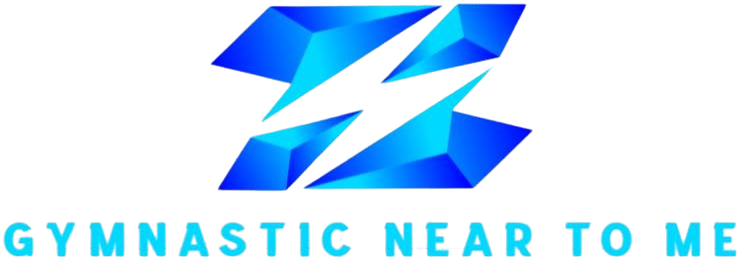Ever been stumped by the difference between a broker and a provider—especially when trying to make decisions about your electricity or gas contract? You’re not alone. It’s a surprisingly common confusion in the energy space. While both help connect people to services, their roles, incentives, and responsibilities are actually quite different. Here’s a clear-eyed look at how these two compare—especially if you’re considering using an energy broker.
Quick Answer
A broker acts as a middleman who helps customers compare offers from multiple providers and secure the best deal. A provider is the actual company that supplies the product or service—like your electricity or internet. The broker doesn’t generate or deliver the energy—they help you buy it smartly.
What does a broker do, exactly?
A broker is essentially a matchmaker.
Picture this: You’re a small business owner trying to sort out your energy contract. You don’t have time to sift through 20 different retailers, decode tariff structures, and negotiate terms. That’s where an energy broker steps in.
Here’s what they typically do:
- Compare offers from multiple energy providers
- Present curated deals that match your needs
- Negotiate better rates or contract terms on your behalf
- Offer ongoing advice (in some cases) as market conditions shift
They’re usually paid by commission from the provider once you sign up—but a good broker discloses this upfront and still acts in your best interest. It’s a bit like using a mortgage broker to shop around banks.
And just like a good mechanic who doesn’t work for a single car brand, a good broker should offer independent guidance across many providers.
What does a provider do?
The provider is the one doing the actual work—supplying the product or service you pay for. In the case of energy, that means billing you, maintaining your account, and ensuring electricity or gas reaches your property.
If you’ve ever received a bill from Origin, AGL, or EnergyAustralia, that’s your provider. They:
- Send your usage bills
- Handle your service complaints
- Maintain service continuity and outages
- Manage metering and customer service
You can think of them as the restaurant in a food delivery app: the broker (like Uber Eats) connects you to the right option, but it’s the provider who makes and delivers the product.
So, who should you talk to first?
That depends on how much time and expertise you have.
- If you already know exactly what you want and have a preferred provider, you can go directly to them.
- If you want to compare offers quickly or are unsure which contract suits your business best, an energy broker saves you a heap of time.
In fact, many medium to large businesses in Australia always use brokers to manage their energy procurement. Why? Because they can access wholesale rates, structure contracts creatively, and offer market insights that providers simply can’t (or won’t) give directly.
Can brokers get better deals than providers?
Often, yes. Especially if you’re a commercial customer or operate across multiple sites.
Some brokers have access to exclusive market rates due to the volume of business they bring to providers. Others negotiate custom plans based on load profiles, usage patterns, or peak demand.
That said, it’s worth checking:
- How the broker is paid (are they aligned with your goals?)
- If they’re comparing a wide enough range of retailers
- Whether they provide post-sale support or just the signup
Anyone who’s been burned by a pushy sales rep knows the value of transparency. A good broker will explain their fees, preferred partners, and give you room to think.
Are there risks with using a broker?
Like any intermediary, brokers vary in quality. Some act more like sales agents than independent advisors, pushing specific retailers regardless of fit.
To avoid this, look for:
- Brokers who compare at least 8–10 providers
- Transparency about commissions
- Reviews or testimonials from similar businesses
An industry body like the Clean Energy Council or relevant licensing boards (depending on the service type) can also help validate a broker’s credibility.
Real-world example: energy for a café in Melbourne
Let’s say you run a busy café in Fitzroy and your quarterly bill is around $1,800. You want to cut costs, but you don’t have the time or industry knowledge to read through contracts.
An energy broker can:
- Analyse your historical usage
- Identify providers offering better rates for small hospitality venues
- Lock in a contract that avoids time-of-use penalties
- Explain the difference between fixed and variable tariffs
The result? You might save 12–18% per year—money better spent on better beans or new gear.
Why does the distinction matter?
Because many Australians assume a provider will always give them the best deal. But that’s not necessarily true—providers are incentivised to maximise margins. Brokers, if aligned well, are incentivised to save you money and win your repeat business.
It’s a bit like asking: do I walk into a dealership, or do I use a car-buying expert to negotiate for me?
If you value time, objectivity, and insight, the broker route often wins.
Quick FAQs
Can a broker also be a provider?
No—by definition, they’re separate. Some providers may offer “broker-style” tools on their websites, but they’re only comparing their own plans.
Is it free to use an energy broker?
In most cases, yes. They’re paid by the provider, not you. But always confirm—some brokers may charge a fee for bespoke services or larger tenders.
Will switching providers interrupt my energy supply?
No. In Australia, switching providers is a billing change—not a physical supply change. The poles and wires remain the same.
At the end of the day, it’s all about understanding who you’re really dealing with. A broker helps you shop smart. A provider delivers the goods. Both have their place—but conflating the two could cost you more than a few dollars.
For a closer look at how brokers stack up against suppliers, energy broker comparisons can offer valuable insight.
And if you want to dig deeper into energy consumer rights, the Australian Energy Regulator is a trustworthy starting point.
Sometimes, just knowing the difference is half the win.

